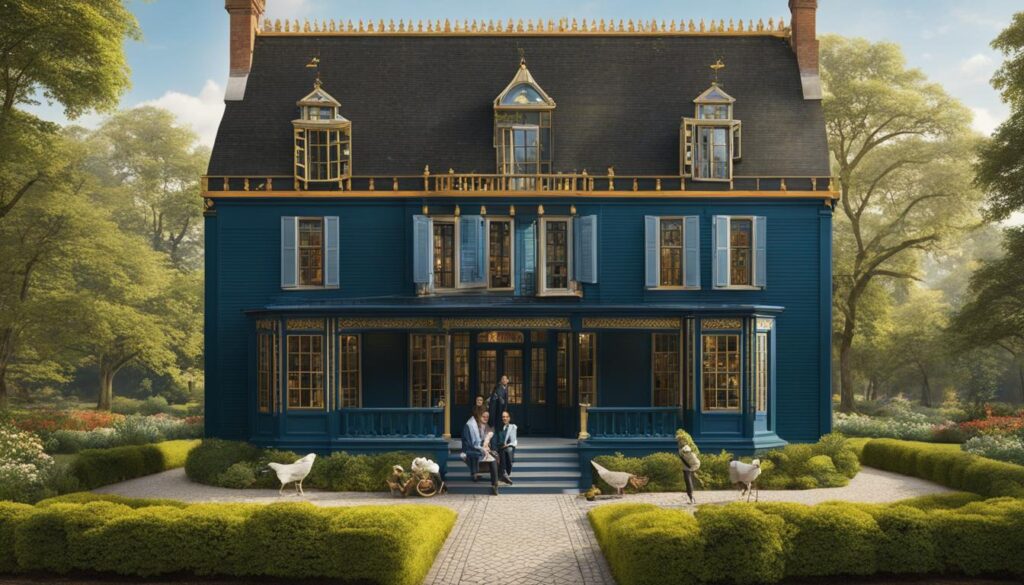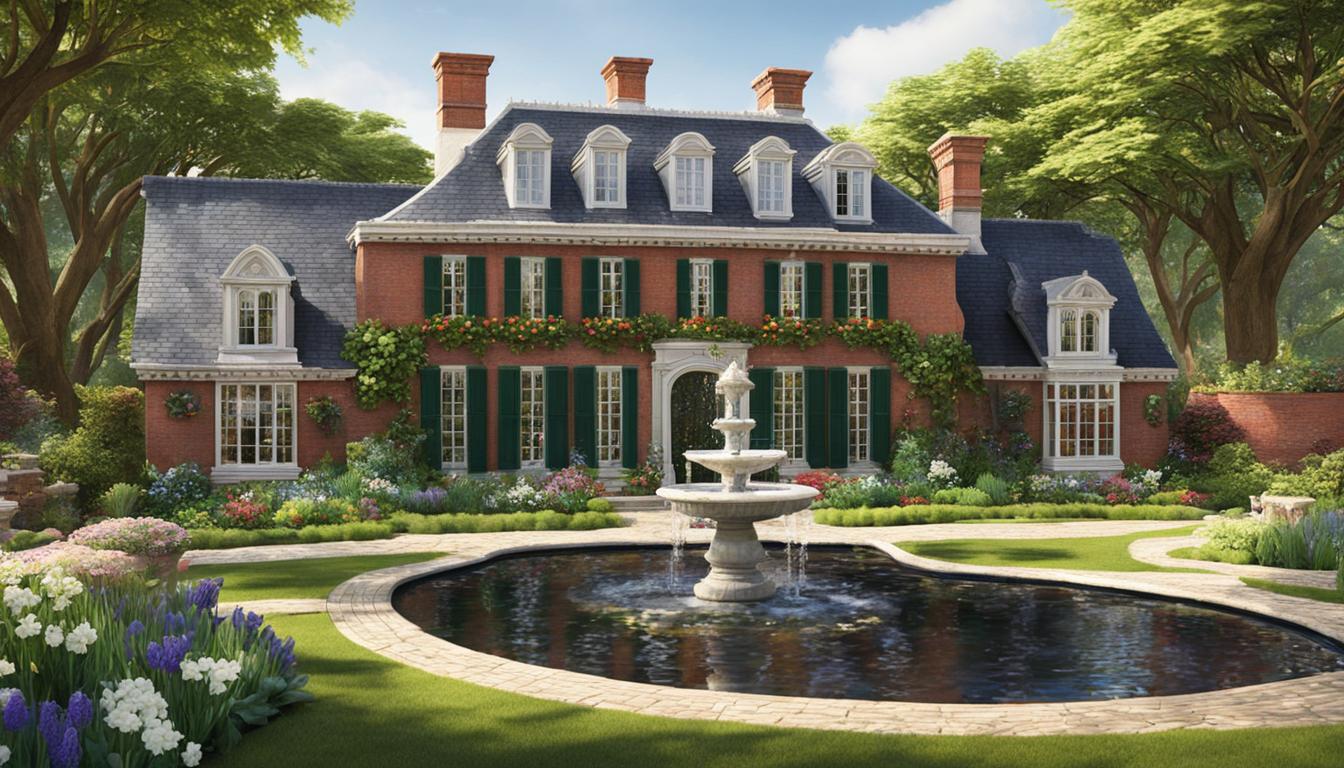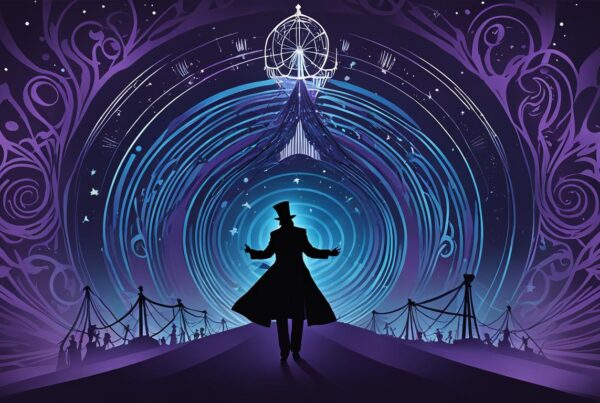If you are looking for an enthralling audiobook experience, with an intricate plot, well-developed characters and a masterful performance, then “The Dutch House” by Ann Patchett is the perfect fit for you. This stunning novel explores the intricacies of family relationships, the concept of home, and the intertwining of past and present.
In this section, we’ll provide you with a comprehensive audiobook review of “The Dutch House,” delving into its author, plot, characters, writing style, and themes. We’ll also analyze the performances of the audiobook and its critical reception, as well as how it compares to other notable works and its lasting literary legacy.
Key Takeaways
- “The Dutch House” by Ann Patchett is a captivating novel available in audiobook format that explores themes of family and home.
- The novel’s intricate plot and well-developed characters make it a compelling read.
- The audiobook version features a masterful performance by the narrator.
- The novel has received both positive and negative reviews, with some critics praising its emotional depth and others criticizing its pacing.
- “The Dutch House” is a standout work in Ann Patchett’s body of work and a significant addition to contemporary literature.
About the Author
Ann Patchett is an award-winning author born in Los Angeles, California, in 1963. She studied at Sarah Lawrence College and later earned an MFA from the Iowa Writers’ Workshop. Her writing style is characterized by vivid descriptions, sharp dialogue, and a talent for crafting engrossing narratives.
Patchett’s notable works include:
| Title | Publication Date |
|---|---|
| Bel Canto | 2001 |
| The Magician’s Assistant | 1997 |
| State of Wonder | 2011 |
| Truth and Beauty: A Friendship | 2004 |
Her work has received critical acclaim, including the PEN/Faulkner Award and the Orange Prize for Fiction. Patchett is also the co-owner of Parnassus Books, an independent bookstore in Nashville, Tennessee, and a passionate advocate for literature and the arts.
Plot Summary
Set in the mid-20th century, “The Dutch House” follows the lives of siblings Danny and Maeve Conroy, who are forced to leave their childhood home, known as the Dutch House, after their father passes away and their stepmother refuses to let them stay. The plot jumps back and forth in time, revealing the complex relationship between the siblings and their shared history with the Dutch House and its former owners.
As adults, Danny and Maeve grapple with their past and try to come to terms with their family’s legacy. Along the way, they encounter a cast of characters, including their stepmother, their father’s business partner, and Danny’s wife, all of whom play a role in shaping the family’s history and future.
The novel’s gripping plot is matched by Patchett’s intricate exploration of themes such as family ties, identity, and the nature of home. Through Danny and Maeve’s story, readers are invited to reflect on their own relationships and what it means to feel truly at home.
The Dutch House: Key Events
| Event | Description |
|---|---|
| The Conroy Family Moves into the Dutch House | After winning a real estate bid, the Conroy family moves into the grand Dutch House, which prompts a lifelong obsession in Danny and Maeve. |
| Andrea Enters the Picture | After their father remarries, Danny and Maeve’s stepmother Andrea gradually pushes them out of the Dutch House, causing a rupture in their family. |
| Maeve’s Illness | Maeve is diagnosed with a chronic illness, which becomes a defining aspect of her character and her relationship with Danny. |
| Danny’s Marriage | Danny marries and starts a family, but his past with Maeve and the Dutch House continues to haunt him. |
| The Dutch House Revisited | Danny and Maeve return to the Dutch House years later and confront the ghosts of their past, leading to a climax that brings their story full circle. |
Overall, “The Dutch House” is a poignant and carefully crafted novel that leaves a lasting impression on readers. Don’t miss the chance to experience its rich plot and themes.
Character Analysis
“The Dutch House” by Ann Patchett is a masterful depiction of complex characters and their development throughout the story. The novel’s central characters are siblings Danny and Maeve, who grow up in the eponymous Dutch House, a grand and mysterious mansion in suburban Philadelphia. In this section, we’ll analyze the motivations and impact of each character on the narrative, emphasizing their individual journeys and personal struggles.
Danny
Danny is a character with conflicted emotions, shaped by his tumultuous childhood and complex relationship with his sister. Initially, he is portrayed as a passive observer of his own life, haunted by the memories of his mother and exiled from his childhood home. Yet, as the story progresses, Danny gradually transforms into a more self-aware and independent person. He starts to pursue his passions and dreams, taking control of his life and relationships. Overall, Danny’s character arc highlights themes of growth, resilience, and self-discovery.
Maeve
Maeve is a fascinating character who serves as both Danny’s protector and guide. She is fiercely loyal to her brother, and her unwavering support becomes the foundation of Danny’s identity. However, Maeve’s own life is marked by a tragic event that leaves her with a physical disability and a sense of loss. Her character reflects themes of sacrifice, endurance, and the bonds of family. Despite her challenges, Maeve emerges as a resilient and empathetic figure who guides her brother towards happiness and fulfillment.
The Dutch House
The Dutch House itself is a character in its own right, a mysterious presence that looms over the narrative and influences the lives of its inhabitants. The grandeur and elegance of the house are in stark contrast to the dysfunctional and fractured dynamics of the Conroy family. The Dutch House represents both a physical and metaphorical home for Danny and Maeve, embodying their memories, hopes, and fears. Its significance is further amplified by the description of its interiors, the walls of which are covered with portraits of the family who lived in the house before the Conroys.
Writing Style and Themes
Ann Patchett’s writing style in “The Dutch House” is captivating and immersive, drawing readers into the world she has created with vivid prose and precise attention to detail. Throughout the novel, Patchett explores a variety of themes that speak to the human experience, from the complexities of family dynamics to the search for a sense of belonging.
The Theme of Family
One of the central themes of “The Dutch House” is the idea of family and the often-complicated relationships between siblings. The novel explores the impact that a traumatic childhood experience has on the two main characters, Danny and Maeve, and how their shared past shapes their perspectives and actions in the present.
The Concept of Home
Another key theme in the novel is the concept of home and what it means to different characters. For some, the Dutch House represents a symbol of wealth and status, while for others, it is a source of pain and trauma. Through the characters’ interactions with the Dutch House, Patchett delves into the idea of home as both a physical and emotional space.
Past and Present
Finally, “The Dutch House” explores the idea of time and how the past can continue to influence our lives in the present. Through flashbacks and recollections, Patchett weaves together a narrative that spans several decades and highlights the ways in which our memories shape our understanding of ourselves and our world.
Overall, through her skillful writing style and exploration of complex themes, Ann Patchett has crafted a novel that is both engaging and thought-provoking. “The Dutch House” is a must-read for fans of literary fiction and those interested in exploring the intricacies of family, home, and memory.
Audiobook Performance
If you’re a fan of audiobooks, you’ll be pleased to know that “The Dutch House” is available in this format too. Narrated by actor Tom Hanks, the audiobook version is a great way to experience the story in a new way.
Hanks’s performance is outstanding, drawing listeners into the world of the novel with his voice acting and subtle inflections. He brings to life the book’s characters and adds an extra layer of emotion to the already captivating narrative.
The pacing of the audiobook is well-suited to the story and keeps the listener engaged throughout. You won’t find yourself getting bored or losing focus while listening, thanks to the excellent performance from Hanks.
Overall, the audiobook version of “The Dutch House” is highly recommended for fans of the novel or those who enjoy audiobooks in general. The combination of Patchett’s compelling writing and Hanks’s skilled narration make for an unforgettable listening experience.
Critical Reception
Since its release, “The Dutch House” has received widespread critical acclaim, with many reviewers praising its evocative storytelling and nuanced characters.
Positive Reviews
According to The New York Times Book Review, “Patchett has created a novel whose beauty is matched only by its generosity of spirit.”[1] The Guardian hailed the novel as “exquisite” and “moving,”[2] while The Washington Post praised Patchett’s “wise and lovely” prose.[3]
Negative Reviews
Some reviewers, however, felt that the novel’s pacing was slow or that its themes were underdeveloped. The Independent criticized the book for its “lack of urgency,”[4] while The Atlantic felt that the novel’s themes of family and inheritance were “overwrought.”[5]
| Publication | Review |
|---|---|
| The New York Times Book Review | “Patchett has created a novel whose beauty is matched only by its generosity of spirit.” |
| The Guardian | “Exquisite… moving” |
| The Washington Post | “Wise and lovely” |
| The Independent | “Lack of urgency” |
| The Atlantic | “Overwrought” |
Comparisons to Other Works
Ann Patchett’s “The Dutch House” is a novel that stands out for its deeply human portrayal of family dynamics, masterful storytelling, and immersive listening experience. To offer readers further insight into works that share similar themes or qualities, we’ve compiled a list of recommended reads:
| Book Title | Author | Similarities |
|---|---|---|
| The Great Gatsby | F. Scott Fitzgerald | The Great Gatsby and “The Dutch House” explore the idea of the American Dream and the illusion of wealth and happiness. |
| The Corrections | Jonathan Franzen | Both novels delve into complex family dynamics and explore the intergenerational impact of past events. |
| Little Fires Everywhere | Celeste Ng | Like “The Dutch House,” Little Fires Everywhere examines mother-daughter relationships and the concept of home. |
| Olive Kitteridge | Elizabeth Strout | Olive Kitteridge and “The Dutch House” share a focus on long-lasting relationships and the complexities of love and forgiveness. |
These books offer illuminating comparisons to “The Dutch House” and are sure to enthrall readers who enjoyed Patchett’s captivating novel.
Impact and Legacy
Since its release, “The Dutch House” has had a significant impact on readers and critics alike, cementing Ann Patchett’s reputation as a master storyteller. The novel has received numerous accolades, including being named a New York Times bestseller and a finalist for the Pulitzer Prize.
However, “The Dutch House” represents more than just critical success. Through its exploration of themes like family, home, and regret, the novel has resonated with readers, prompting discussions and reflections on these universal topics.

Looking ahead, it’s clear that “The Dutch House” will continue to leave a lasting legacy in the literary world. Its portrayal of complex human relationships and poignant reflections on the passage of time will undoubtedly inspire future writers and readers for years to come.
Conclusion
In conclusion, “The Dutch House” by Ann Patchett is a must-read novel, especially in audiobook format. The narrative is rich in detail and the characters are well-drawn and complex, making it easy for readers to become immersed in the story. Patchett’s writing style is both elegant and accessible, with themes that are both universal and thought-provoking.
Overall, “The Dutch House” is a powerful novel that will stay with readers long after they have finished reading it. Its impact within the literary community is significant, earning Ann Patchett even more recognition and acclaim for her contributions to contemporary literature.
Whether you’re a longstanding fan of Patchett’s work or just discovering her for the first time, “The Dutch House” is a novel that is not to be missed. We highly recommend it for anyone looking for a captivating and emotional reading experience.



